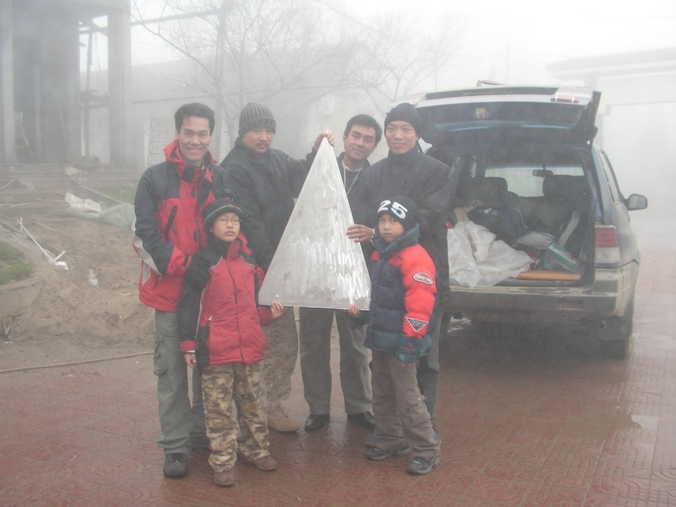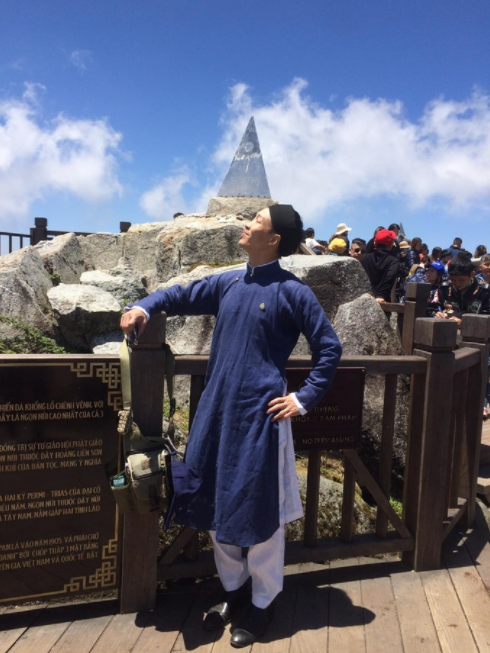 |
| (Photo courtesy of Le Hong Quang) |
Upon reuniting with his creation on the top of Fansipan in May 2021, Le Hong Quang was overwhelmed with emotion. Standing in the mountain peak with the wind blowing, he recounted the origins of his idea to build the stainless steel peak over 13 years ago.
In 2008, images of a cracked marble block on Fansipan peak, the highest mountain in Vietnam, circulated on the popular Hearts of Vietnam website. Inspired by these images, Hong Quang conceived the idea for a monument to renew the mountain known as “the roof of Indochina.” His proposal was approved by Hoang Lien Son National Park Director Nguyen Quoc Tri, and he assembled a team of five people to bring his vision to life.
Architect Le Thanh Van designed the monument, which resembled the original shape of the Fansipan peak in 1964. Initially, duralumin was chosen as the material for the icon, but due to its rarity and expense, metallurgical engineer Nguyen Minh Tuan opted for SUS201 stainless steel. Tuan believed that this material could withstand the test of time and develop a shinier appearance over the years through exposure to wind and rain on the mountaintop.
 |
| (Photo courtesy of Le Hong Quang) |
On January 26, 2008, the 20 kg block, standing at 99 cm in height, was completed. The tip of the block was adorned with a 5-pointed star on all three sides, and the words “FANSIPAN 3,143m” were inscribed on it. Quang brought the block to Hoan Kiem Lake, where he stood in front of the King Le Thai To statue to pray for peace, before embarking on a bus journey to Fansipan that night.
However, the bus carrying Quang’s group broke down when they reached Yen Bai Province. Determined to deliver the block to the Hoang Lien Son National Park Managing Board on time, Quang decided to carry the block by himself and took a train to Lao Cai. Coincidentally, the bus was repaired as soon as Quang left, leading the group to joke that back then, anyone who wanted to reach Lao Cai had to travel by train, including the steel block!
 |
| (Photo courtesy of Le Hong Quang) |
The following morning, the group regrouped in Lao Cai and continued their journey to Sa Pa town, where they handed the monument to the National Park Managing Board. To complete the construction before the Lunar New Year, Nguyen Minh Tuan and a group of H’Mong porters carried the block on their backs to the top of Fansipan.
Despite the freezing winter temperatures in Hoang Lien Son, the group persevered and successfully reached the summit with the heavy stainless steel pyramid. In just half an hour, they affixed the metal pyramid to the mountain, positioning the block’s sharp angle facing north and the flat surface towards the south, allowing sunlight to sparkle on the top of the mountain on clear days.
More than 10 years have passed, but Le Hong Quang and Nguyen Minh Tuan still vividly remember the bone-chilling coldness they experienced in Hoang Lien Son forest that day. Their journey stands as a testament to their deep pride and love for their country, a pride that fills their hearts when they stand next to their “spiritual child” on the roof of Indochina.



